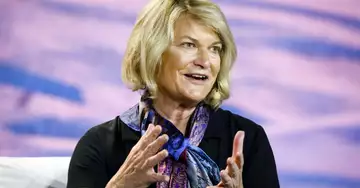One of the highest-profile attempts to create a cryptocurrency law in Washington would finally distinguish the roles of the two main U.S. market regulators and free crypto miners from being considered broker-dealers, according to the two senators pushing the bill.
Senators Kirsten Gillibrand and Cynthia Lummis, who will both speak at Consensus 2022 in June, have been working for months on the bipartisan legislation, which they say they expect to release in June - a revelation that has been pushed back in recent months. The two spoke on a joint panel Tuesday at the DC Blockchain Summit.
"We're really committed to creating the kind of grassroots, framework legislation that will allow this industry to grow and thrive," said Gillibrand, a New York Democrat. "The best thing we can do for all these companies is to provide clarity."
The bill would rely on the Commodity Futures Trading Commission (CFTC) as the primary regulator for spot markets and futures, while the Securities and Exchange Commission (SEC) would serve as the regulator for cryptocurrencies, which can be defined as securities through the so-called Howey test - specifically, an asset that is "offered to finance a business in the same way that stocks are offered to finance businesses." The legislation would also clarify that crypto mining is not covered under the rules for broker-dealers.
The bill is still being drafted, but an "optimistic" Gillibrand said she expects the Senate to vote on it "no later than next year." It would have to pass four different committees, only two of which Gillibrand and Lummis serve on.
Lummis, a Wyoming Republican, said one advantage of working on crypto legislation is that it is not inherently partisan, although she said of drafting that bill, "It's so important that we get it right the first time.
In a separate interview Tuesday, recently sworn-in CFTC Commissioner Caroline Pham said her agency already has enough authority to play a major role in crypto oversight.
"The CFTC already has a framework in place that is ready to move into the regulated sector for digital assets now," Pham said. The extent of the agency's existing reach is something that "people often don't realize."

